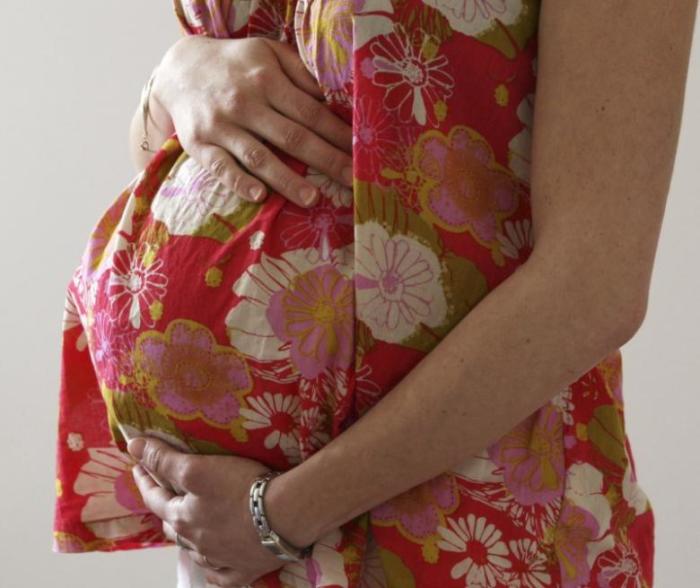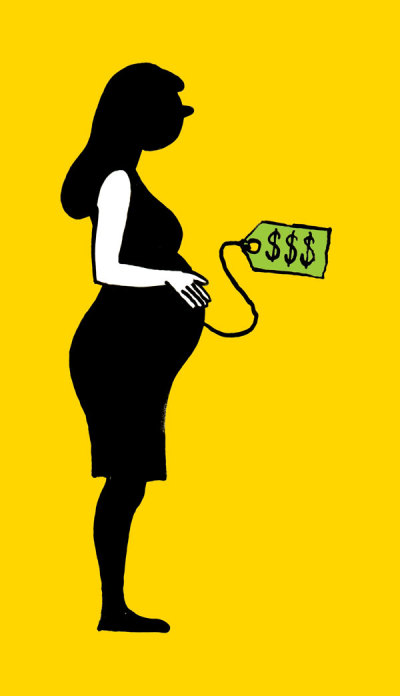Washington State to 'Monetize Wombs,' Legalize 'Baby Selling,' Redefine 'Parent'

Washington state is set to legalize commercial surrogacy, a move children's rights advocates say amounts to the selling of babies, bases the definition of a parent on "intent," and opens avenues for child abuse and other horrors.
Just before 1 a.m. Wednesday morning, the Washington state House of Representatives passed the "Uniform Parentage Act," along party lines with every Democrat in favor and every Republican opposed. The bill had previously passed the state Senate with total Democratic support and three Republicans. The state's Democratic governor, Jay Inslee, is expected to sign the legislation.
"For House Republicans, this bill was a matter of conscience,'' said Liz Pike, who represents the state's 18th house district, according to Clark County Today.
"We all voted 'no' to protect the womb from being monetized and commercialized. This bill sets virtually no limits on the amount people will be able to sell or purchase a human baby for. I'm disgusted that such a bill would ever be considered let alone pass. What have we become as a state, selling human babies to the highest bidder? Is this who we are?"

Katy Faust, who leads children's rights organization Them Before Us and testified against the legislation during the hearings, regards the likely soon-to-be law as disastrous.
"When I say that we have established a global marketplace for children, I am not exaggerating. That is exactly what this is," Faust told The Christian Post Thursday afternoon.
"Once you legalize something and commercialize something, you're going to get more of it," she said, noting that the Washington legislation contains no restrictions and more economically disadvantaged and vulnerable women who think this is just another way to make money will be exploited.
As the bill stands, Faust explained, no limits are placed on how many children can be procured through surrogacy arrangements, no requirements exist saying that people intending to pay for surrogacy services must be residents of Washington state or American citizens, or even that the women must be inseminated in Washington. All it takes is one consultation that occurs on Washington soil and a contract can be legally enforced even if the individuals using the surrogate mother hail from nations where surrogacy is prohibited.
Motions to amend the bill requiring all "intended parents" to be subject to the same screening procedures as adoptive parents and the creation of a state-run database to track those intended parents and limit the number of births were voted down.
"In its current form, as it passed out of the House, the bill even permits convicted felons to purchase human babies,'' Pike explained.
"There was a host of amendments offered by my esteemed colleagues that would have put needed protections in the bill, but of course, the Democrats systematically rejected them all — one by one."
In recent years, notable horror stories have appeared detailing the abuses of the fertility industry.

The Straits Times reported Sunday that 28-year-old Japanese billionaire Mitsutoki Shigeta, who is not married, won custody of 13 children that his sperm was used to create through an American-owned fertility clinic operating in Bangkok, using surrogates from Thailand. He reportedly told the clinic he wanted to produce 10 to 15 babies per year and continue the baby-making process until he dies, yielding potentially hundreds of children. He plans to send his offspring to an international school in Tokyo.
Faust told CP that he or anyone else like him could come now to Washington state and legally undertake a similar endeavor if the Uniform Parentage Act is signed into law.
Though the Democratic legislators had their minds made up, Faust gave each one a copy of a list of documented cases where surrogacy-related incidents went horribly wrong, including a case where two men were convicted of subjecting their surrogate-born son to, as one investigator described it, "the worst [paedophile] rings ... if not the worst ring I've ever heard of." Police believe the men created the boy through surrogacy ''for the sole purpose of exploitation.''
Several nations have closed their borders to surrogacy altogether, banning third party reproductive operators from conducting business there often because of such ugly instances and abuses.
"So now we wait for children to be harmed," said Faust, exasperated, when asked where things currently stand in the northwestern state. Commercial surrogacy is also legal in California and legislation is currently under consideration in a few other states.
Though the surrogacy aspect has received most of the attention in the legislative debate, the bill is far more radical in how it defines "parent" as it essentially erases biology from the picture, Faust stressed.
"What this bill actually does is establish that all it takes for [the state government] to decide that one gets full authority over a vulnerable baby is one's 'intent' to parent. It doesn't matter if you have any biological connection to the child at all. It doesn't matter how many adults, if one is single or married. If you intend to parent and create a contract and have the means to create a child through surrogacy or other reproductive technologies, we will give you our full authority."
The language of the bill is worded in a very murky way, she said, and some are raising the possibility that more than two people could enter such contracts and be legally considered "parents." The legislation sometimes refers to "both" parents but mainly speaks of "adjudicated parents" and "intended parents" and defers to the terms of the contract, Faust said.
Mere "intent" to parent flies in the face of all of best practices of adoption, she added, and it violates the Hague Convention on international adoption that has been adopted by 70 nations around the world. The number one predictor of child abuse, she noted, is a home where a cohabiting male is present who is not related to the child. But he, too, can be a legal "parent" under this bill.
"We are knowingly putting children in situations where they are statistically the most likely to be abused and neglected," Faust said.
"People don't get what a massive shift this is. We are messing with the nature of what it means to be a human baby. That is what we're doing."



























